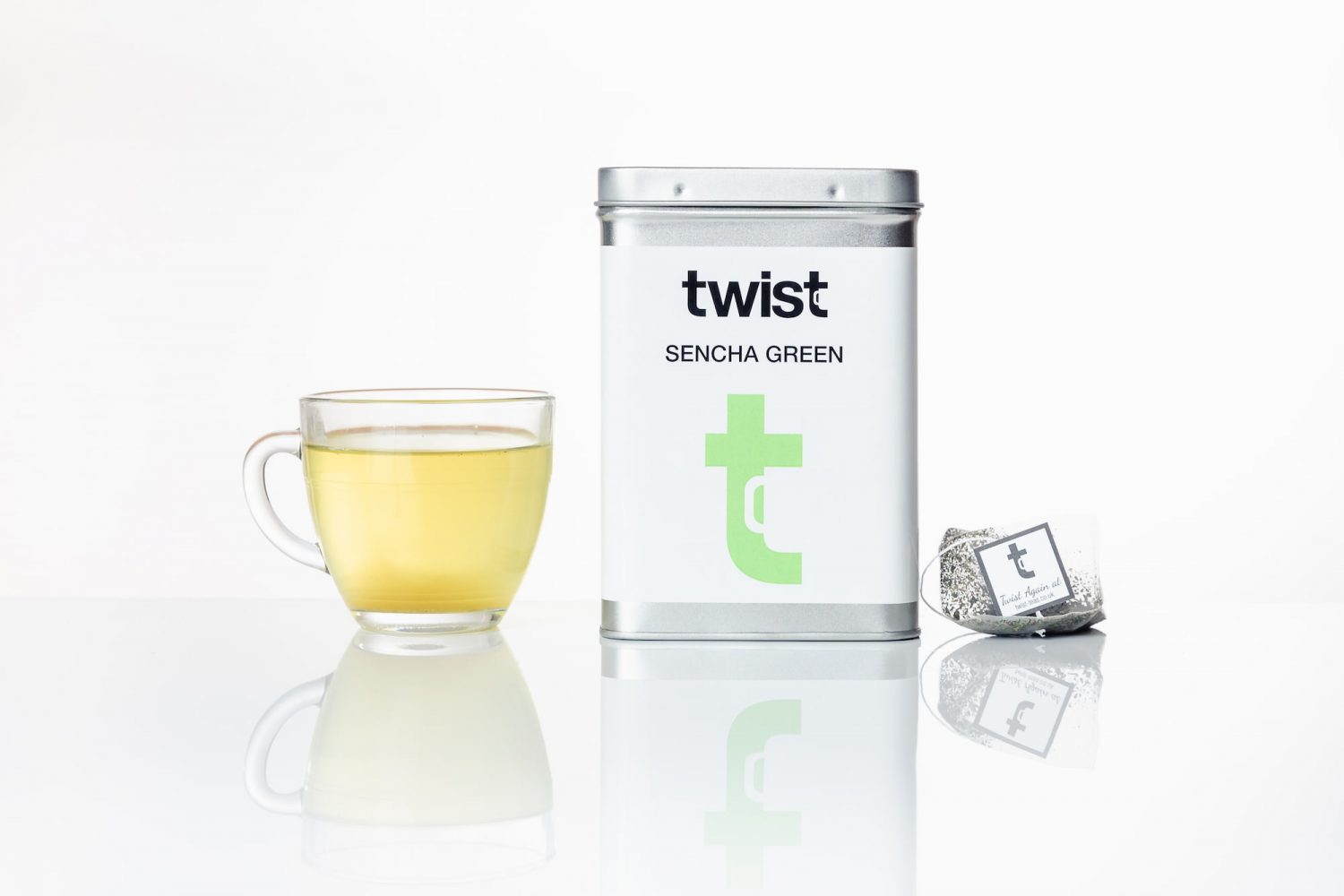Did you know that drinking green tea every day can have a significant impact on your health? Green tea, with its numerous health benefits, is not just a popular beverage but also a natural remedy for various health conditions. The rich combination of anti-microbial, anti-inflammatory, and antioxidant components makes green tea a powerhouse of wellness.
Key Takeaways
- Drinking green tea regularly may help with weight reduction, immune system enhancement, cardiac health improvement, and diabetes control.
- Proper consumption of green tea is essential to maximise its benefits.
- Avoid drinking green tea on an empty stomach and limit consumption to two or three cups a day.
- Prepare green tea by steeping the tea leaves in warm, not boiling, water for a few minutes.
- Green tea potentially has cancer-fighting properties, can boost heart health, aids in weight loss, supports brain health, and promotes oral health.
Now, let’s explore how to properly prepare green tea to ensure maximum flavour and benefits.
How to Prepare Green Tea Properly
When it comes to enjoying the health benefits of green tea, proper preparation is key. Follow these simple steps to make a perfect cup of green tea:
Start by boiling two cups of water. Once the water reaches a rolling boil, let it cool for a few minutes. This will help preserve the delicate flavours and prevent the tea from becoming too bitter.
Add two teaspoons of green tea leaves into a teapot or a tea infuser. It’s important to use a high-quality loose leaf tea (like one of our own) for the best taste and aroma.
Next, pour the slightly cooled water over the tea leaves. Allow the leaves to steep for about two to three minutes. This will vary depending on your personal preference and the strength of flavour you desire.
After the steeping time is complete, strain out the tea leaves. This can be done by pouring the tea through a fine mesh strainer or removing the tea infuser from the teapot.
Finally, transfer the freshly brewed green tea into a cup and enjoy. You can drink it plain or add a touch of honey or lemon for added flavour, if desired.
A more simple way is to:
- Select a corn silk pyramid teabag from our delicious green tea selection
- Add it to a cup of slightly cooled boiled water (about 80 degrees)
- Let it rest for 3-5 minutes.
- Enjoy!
By following these simple steps, you’ll be able to prepare a delicious and refreshing cup of green tea that is packed with all the beneficial components. Remember, avoid adding tea leaves or a teabag to boiling water, and be mindful of the steeping time for the best results.
Health Benefits of Green Tea
Green tea is rich in polyphenols; powerful antioxidants that play a key role in protecting the body against a range of diseases and promoting overall health. The numerous health benefits of green tea make it a popular choice among health enthusiasts and tea lovers alike.
1. Enhanced Brain Function
The combination of caffeine and L-theanine found in green tea may lead to improved brain function. This powerful duo can enhance mood, increase alertness, and enhance cognitive performance.
By providing a gentle, sustained release of energy, green tea can help you stay focused and productive throughout the day without the jittery effects often associated with other caffeinated beverages.
2. Boosted Metabolism and Weight Loss Support
Green tea has long been touted as a natural weight loss aid. Its unique blend of catechins and caffeine potentially helps boost metabolism, increase fat oxidation, and improve insulin sensitivity, leading to greater overall calorie burn.
A study conducted by the American Journal of Clinical Nutrition found that consuming green tea extract led to a significant increase in fat oxidation rates, suggesting its potential for aiding weight loss and maintaining a healthy body composition.
3. Beneficial Effect on Blood Sugar Control
Drinking green tea could have a positive impact on blood sugar control and insulin sensitivity. The polyphenols in green tea can help regulate glucose levels and inhibit glucose absorption, potentially reducing the risk of developing type 2 diabetes.
A study published in the British Journal of Nutrition showed that green tea consumption improved glycemic control and insulin sensitivity in individuals with pre-diabetes, underscoring its potential as an effective preventive measure against diabetes.
4. Lower Risk of Heart Disease
Regular consumption of green tea has been associated with a lower risk of heart disease. The antioxidants in green tea, particularly catechins, could help reduce cholesterol levels, lower blood pressure, and improve blood vessel function.
Research has also suggested that green tea may help reduce the risk of thrombosis and abnormal clot formation, which are leading causes of heart attacks and strokes.
5. Potential Benefits for Brain Health
Green tea has shown promise in reducing the risk of neurodegenerative diseases such as Alzheimer’s and Parkinson’s. The polyphenols and antioxidants found in green tea have neuroprotective properties and can help prevent the accumulation of toxic beta-amyloid plaques associated with Alzheimer’s disease.
Emerging research also suggests that green tea may enhance memory, attention, and overall brain function, making it a potential natural supplement for maintaining brain health as we age.
Health Benefits of Green Tea
| Potential Health Benefits | Summary |
|---|---|
| Enhanced Brain Function | Improve mood, increase alertness, and enhance cognitive performance |
| Boosted Metabolism and Weight Loss Support | Increase fat oxidation and improve insulin sensitivity |
| Beneficial Effect on Blood Sugar Control | Regulate glucose levels and inhibit glucose absorption |
| Lower Risk of Heart Disease | Reduce cholesterol levels, lower blood pressure, and improve blood vessel function |
| Potential Benefits for Brain Health | Reduce the risk of neurodegenerative diseases and enhance memory and attention |
With its wide array of potential health benefits, incorporating green tea into your daily routine can have a positive impact on your overall well-being.
Green Tea and Cancer Prevention
Green tea has gained attention for its potential cancer-fighting properties. One of the key compounds responsible for these benefits is epigallocatechin gallate (EGCG), an antioxidant found in green tea.
Studies have shown that EGCG has the ability to reduce the growth of breast and prostate tumors. It may also have the potential to prevent cancer formation and inhibit the spread of cancer cells.
Research conducted on the effects of green tea and cancer prevention has provided promising results. While more studies are needed to fully understand the mechanisms behind these effects, incorporating green tea into a balanced diet may be a beneficial lifestyle choice for reducing the risk of certain cancers.
It’s important to note that while green tea shows potential in cancer prevention, it should not be seen as a standalone treatment or cure. Consulting with a healthcare professional and following their advice is crucial for cancer prevention and treatment.
Green Tea and Heart Health
Regular consumption of green tea is associated with a lower risk of cardiovascular disease. Green tea contains powerful antioxidants called catechins, which have been found to have significant cardiovascular benefits. These antioxidants help in managing cholesterol levels and improving insulin sensitivity, both of which play a vital role in maintaining heart health.
Cholesterol is a waxy substance found in the blood and can build up in the arteries, leading to a condition called atherosclerosis. This condition restricts blood flow and can increase the risk of heart attacks and strokes. Green tea has been shown to help reduce total cholesterol levels and lower levels of LDL cholesterol (the “bad” cholesterol), thus protecting against heart disease.
Did You Know? Drinking three cups of green tea per day has been associated with a 27% lower risk of developing heart disease.
Green tea also helps in improving insulin sensitivity, which is crucial for managing and preventing diabetes. Insulin is a hormone that helps regulate blood sugar levels, and impaired insulin sensitivity can lead to elevated blood sugar and an increased risk of heart disease. Green tea has been found to improve insulin sensitivity, potentially reducing the risk of developing diabetes and its associated complications.
Cardiovascular Benefits of Green Tea
To summarise, green tea offers the following potential cardiovascular benefits:
- Reduces the risk of cardiovascular disease
- Improves cholesterol levels
- Enhances insulin sensitivity
- Protects against atherosclerosis
- Reduces the risk of heart attacks and strokes
Incorporating green tea into a balanced diet and a healthy lifestyle can have a positive impact on heart health. However, it is essential to note that while green tea can be beneficial, it should not replace other heart-healthy habits such as regular exercise, a nutritious diet, and medical advice.
Green Tea and Weight Loss
When it comes to shedding those extra pounds, green tea can be a helpful addition to your weight loss journey. Thanks to its fat-burning properties, green tea has gained popularity as a natural aid for weight management. Studies have shown that regularly consuming green tea possibly has a positive impact on body weight and fat reduction.
One of the key components of green tea that contributes to weight loss is catechins. These natural antioxidants found in green tea have been found to boost metabolism and increase the rate at which the body burns fat. By stimulating thermogenesis, the process of heat production in the body, green tea promotes fat oxidation and helps convert stored fat into energy.
Research has shown that drinking catechin-rich green tea can reduce body weight, particularly when combined with a healthy diet and regular exercise. A study published in the Journal of Nutrition found that participants who consumed green tea extract with high catechin content experienced greater reductions in body weight, body mass index (BMI), and waist circumference compared to those who consumed a placebo.
Furthermore, green tea can also assist in maintaining a healthy weight after significant weight loss. By boosting metabolism and increasing fat oxidation, green tea helps prevent weight regain and supports long-term weight management.
So if you’re looking to shed a few pounds, consider incorporating green tea into your daily routine. It’s a refreshing and healthy beverage that can complement your weight loss efforts and provide a range of other health benefits.
Green Tea and Weight Loss Tips:
- Drink 2-3 cups of green tea per day to maximize its weight loss benefits.
- Combine green tea consumption with a balanced diet and regular exercise for optimal results.
- Avoid adding sugar or sweeteners to your green tea to keep the calorie count low.
- Experiment with different types of green tea, such as matcha or sencha, to find your favourite flavour.
- Don’t rely solely on green tea for weight loss; it should be part of a comprehensive weight management plan.
Green Tea and Brain Health
When it comes to brain health, green tea is a powerful ally. It offers potential benefits in improving cognitive function and protecting against neurodegenerative diseases such as Alzheimer’s and Parkinson’s.
One of the key factors contributing to the brain-boosting properties of green tea is its high antioxidant content. Antioxidants help combat oxidative stress and inflammation in the brain, which are believed to play a role in the development of age-related cognitive decline.
Additionally, green tea contains an amino acid called L-theanine, which has been found to have relaxant effects on the brain. It can promote a sense of calmness and relaxation, reducing stress and anxiety. L-theanine can also increase alpha-wave generation in the brain, which is associated with a state of focused relaxation and heightened mental alertness.
“Green tea is like a natural brain tonic. Its antioxidants and L-theanine can help keep your mind sharp and protect against age-related brain diseases.”
To fully harness the benefits of green tea for brain health, it is recommended to incorporate it into a balanced diet and healthy lifestyle. Drinking 2-3 cups of green tea a day can be a beneficial addition to your routine.
Green Tea and Brain Health
| Benefits | Description |
|---|---|
| Improved cognitive function | The antioxidants and L-theanine in green tea can enhance brain performance and mental clarity. |
| Protection against neurodegenerative diseases | Green tea’s antioxidants may help slow down the progression of Alzheimer’s and Parkinson’s diseases. |
| Promotes relaxation | The amino acid L-theanine promotes relaxation and reduces stress and anxiety. |
| Increase alpha-wave generation | Alpha waves are associated with focused relaxation and improved mental alertness. |
Overall, green tea is not only a delicious beverage but also a natural way to support brain health. By including it in your daily routine, you can enjoy its refreshing taste while reaping the numerous benefits for your brain.
Green Tea and Diabetes Control 
When it comes to managing diabetes, incorporating green tea into your daily routine may have a beneficial effect on blood sugar control. The antioxidants and bioactive compounds present in green tea have been shown to improve insulin sensitivity and decrease glucose production in the liver, which can help regulate blood sugar levels.
Regular consumption of green tea has also been associated with a lower risk of developing type 2 diabetes. Research suggests that the polyphenols found in green tea may help prevent insulin resistance and reduce the likelihood of developing the disease.
In addition to its potential blood sugar-regulating properties, green tea offers a range of other health benefits. It is rich in antioxidants, which can help protect against damage caused by free radicals in the body. Green tea may also have anti-inflammatory effects and contribute to heart health, weight management, and cognitive function.
Include Green Tea in Your Daily Routine
To reap the potential benefits of green tea for blood sugar control, it is recommended to incorporate two to three cups of green tea into your daily routine. However, it is important to note that green tea contains caffeine, which can have an effect on blood sugar levels. Individuals with diabetes should monitor their blood sugar closely and consult with a healthcare professional to determine the optimal amount of green tea for their specific needs.
As with any dietary changes, it is important to maintain a balanced and varied diet, along with regular physical activity, to effectively manage diabetes. Green tea can be enjoyed hot or cold and can be brewed from loose tea leaves or tea bags.
Green tea offers a natural and potentially powerful way to support blood sugar control in individuals with diabetes. Incorporating this refreshing beverage into your daily routine may help regulate blood sugar levels and contribute to a healthier lifestyle.
Green Tea and Oral Health
When it comes to maintaining optimal oral health, green tea can be a valuable ally. This rejuvenating beverage is not only refreshing but also offers a range of benefits for your teeth and gums.
One of the key advantages of green tea is its natural antibiotic and antifungal properties. By consuming green tea regularly, you can help protect your teeth against cavities and prevent the buildup of harmful bacteria that can lead to bad breath.
Additionally, green tea contains fluoride, a mineral that promotes dental health. Fluoride helps strengthen tooth enamel, making it less susceptible to decay. It also acts as a barrier, preventing bacteria from attaching to the surface of the teeth and causing damage.
Here’s a closer look at the potential oral health benefits of green tea:
- Protection against cavities and tooth decay
- Prevention of bad breath
- Strengthens tooth enamel
- Reduces the risk of gum disease
- Minimises plaque formation
By incorporating green tea into your daily routine, you can enjoy healthier teeth and gums while savouring the delightful taste of this popular beverage.
| Potential Oral Health Benefits of Green Tea | How Green Tea Helps |
|---|---|
| Protection against cavities and tooth decay | The natural antibiotic properties of green tea fight against cavity-causing bacteria, reducing the risk of tooth decay. |
| Prevention of bad breath | The antifungal properties of green tea help eliminate the bacteria that cause bad breath, leaving your mouth feeling and smelling fresher. |
| Strengthens tooth enamel | The fluoride content in green tea strengthens tooth enamel, making it less susceptible to acid erosion and decay. |
| Reduces the risk of gum disease | The anti-inflammatory properties of green tea help reduce inflammation in the gums, preventing gum disease and promoting healthier gums. |
| Minimises plaque formation | Green tea contains catechins, which inhibit the growth of plaque-causing bacteria, helping to keep your teeth and gums clean. |
Expert Insight:
“Green tea is a great addition to any oral care routine. Its natural properties provide protection against cavities, bad breath, and gum disease, ensuring a healthier smile.” – Dr. Emily Wilson, Dental Specialist
Incorporating green tea into your daily oral care routine can have a positive impact on your overall oral health. Remember to brush and floss regularly, and enjoy a cup of green tea daily to unlock the benefits it offers for your teeth and gums.
Green Tea and Immune System Boost
Did you know that green tea can do wonders for your immune system? With its immune-boosting properties, green tea can potentially reduce the risk of cold and flu symptoms, keeping you healthy and resilient. This is thanks to the antioxidants present in green tea, which help strengthen the immune system and protect against harmful pathogens.
In addition to its role in immune health, green tea may also have anti-inflammatory effects. Inflammation is a natural response that helps the body fight off infections, but chronic inflammation can have negative effects on overall health. Green tea’s anti-inflammatory properties can help reduce inflammation and promote a balanced immune response.
Furthermore, green tea could contribute to improved skin elasticity, keeping you looking youthful and vibrant. The antioxidants in green tea help protect the skin against free radicals, which can damage cells and accelerate ageing.
“Green tea’s immune-boosting properties and anti-inflammatory effects make it a valuable addition to a healthy lifestyle.”
Benefits of Green Tea for the Immune System:
- Boosts immune system function
- Reduces the risk of cold and flu symptoms
- Anti-inflammatory effects
- Improves skin elasticity
To reap the immune-boosting benefits of green tea, it is recommended to consume it regularly as part of a balanced diet. Incorporating green tea into your daily routine is a simple and enjoyable way to support your immune system and overall well-being. Take a look at our Green Tea Blends here at Twist, we have a blend for everyone!

Common Mistakes When Consuming Green Tea
While green tea offers numerous health benefits, it’s important to avoid common mistakes that can hinder its effectiveness. Let’s take a closer look at some key errors to avoid when it comes to green tea consumption.
Drinking Green Tea on an Empty Stomach
One common mistake is consuming green tea on an empty stomach. This can lead to acidity and discomfort. To prevent this, it’s best to enjoy green tea after a meal or snack.
Excessive Consumption of Green Tea
Another mistake is drinking too much green tea. While green tea is beneficial, excessive consumption can have negative effects. It can lead to sleeplessness, anxiety, and digestive problems. To maximize the benefits of green tea, limit your intake to two or three cups a day.
Drinking Green Tea Before Sleep
Drinking green tea before bedtime is not recommended due to its caffeine content. The stimulating effects of caffeine can disrupt sleep patterns and make it difficult to fall asleep. To ensure a restful night’s sleep, it’s best to avoid green tea in the evening.
Interfering with Iron Absorption
One mistake that often goes unnoticed is consuming green tea alongside iron-rich meals. Green tea contains tannins, which can interfere with the body’s ability to absorb iron. To maximise iron absorption, it’s best to consume green tea at least one hour before or after a meal.
Avoiding these common mistakes will help you make the most of your green tea consumption and reap its many health benefits.
Conclusion
Green tea is a powerhouse when it comes to health benefits. With its antioxidant effects, it offers potential cancer prevention, improved heart health, weight loss support, brain protection, diabetes control and prevention, oral health benefits, immune system boost, and more. Start your health journey and harness all of these benefits through trying our popular blend ‘Refresher Green’ today!
Incorporating green tea into your daily routine can lead to a healthier lifestyle. Whether you enjoy it hot or cold, adding a few cups of green tea to your day can provide a natural boost to your overall well-being.
So why wait? Start reaping the benefits of green tea today and discover the positive impact it can have on your health. Cheers to a healthier you!
FAQ
What are the benefits of drinking green tea?
Drinking green tea offers a wide range of benefits, including antioxidant effects, potential cancer prevention, improved heart health, weight loss support, brain protection, diabetes control and prevention, oral health benefits, immune system boost, and more.
What are the common mistakes when consuming green tea?
Some common mistakes when drinking green tea include consuming it on an empty stomach, drinking excessive amounts, consuming it before sleep, and adding tea leaves to boiling water.
How do you prepare green tea properly?
To prepare green tea, boil two cups of water, let it cool slightly, add two teaspoons of green tea leaves, let it steep for a few minutes, strain out the tea leaves, and transfer the green tea into a cup.
What are the health benefits of green tea?
Green tea is beneficial for reducing body weight, boosting immunity, improving cardiac health, controlling diabetes, enhancing brain function, lowering the risk of heart disease, aiding in weight loss, and protecting against neurodegenerative diseases.
Does green tea have cancer-fighting properties?
Green tea contains antioxidants that have been shown to help reduce the growth of certain tumours. It may have potential in preventing cancer and inhibiting the spread of cancer cells.
How does green tea benefit heart health?
Regular consumption of green tea is associated with a lower risk of cardiovascular disease. It may help manage cholesterol levels, improve insulin sensitivity, and decrease the risk of dying from cardiovascular disease.
Can green tea help with weight loss?
Green tea may help boost metabolism and increase fat burning, making it beneficial for weight loss. Studies have shown that drinking catechin-rich green tea can significantly reduce body weight.
What are the benefits of green tea for brain health?
Green tea has potential benefits for brain health, including improving cognitive function, protecting against neurodegenerative diseases like Alzheimer’s and Parkinson’s, and promoting relaxation in the brain.
Can green tea help with diabetes control?
Green tea may have a beneficial effect on blood sugar control by improving insulin sensitivity and decreasing glucose production in the liver. Regular consumption is associated with a lower risk of type 2 diabetes.
How does green tea benefit oral health?
Green tea’s natural antibiotic and antifungal properties can help protect against cavities and bad breath. It also promotes dental health and prevents bacteria from attacking teeth.
Does green tea boost the immune system?
Green tea contains antioxidants that can boost the immune system and reduce the risk of cold and flu symptoms. Its anti-inflammatory effects and potential skin benefits contribute to overall health.
How can incorporating green tea into your daily routine contribute to a healthier lifestyle?
By incorporating green tea into your daily routine, you can enjoy its various health benefits, including antioxidant effects, potential cancer prevention, improved heart health, weight loss support, brain protection, diabetes control and prevention, oral health benefits, immune system boost, and more.


















